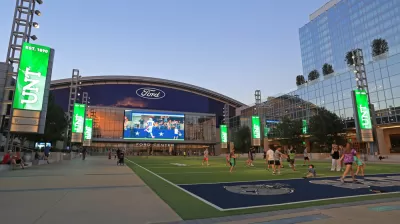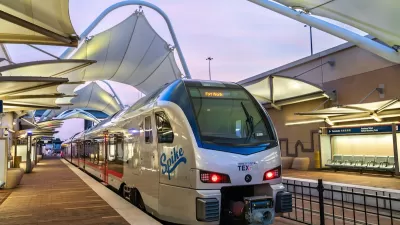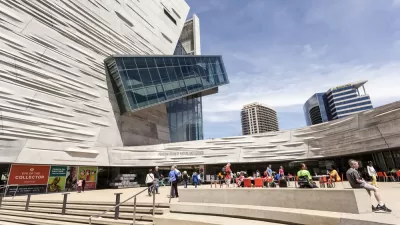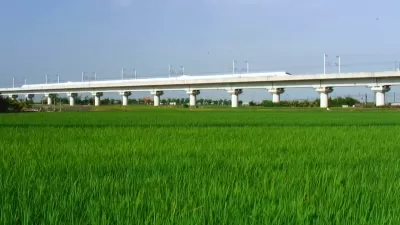The Star, the corporate headquarters of the Dallas Cowboys, opened in 2017, but this week it finally got the architecture review treatment from an unflinching critic.

Mark Lamster writes a review of the Dallas Cowboy headquarters, The Star, located in Frisco, Texas. Lamster places the tradition of the Dallas Cowboys as "America's Team" before shifting the history to the tenure of current owner Jerry Jones.
In Frisco, he has built it a genuine capital, a shimmering football Oz that emerges like a spectral vision from the blank canvas of North Texas nothingness. It is a miniature city, a 91-acre branded corporate headquarters and entertainment complex dedicated to football, consumption and — above all — profit.
The Star is not to be confused with AT&T, which opened in 2009 with a price tag of more than a billion dollars including more than $300 million in public funding. According to Lamster, however, the style of both complexes works in concert.
As at the team's AT&T Stadium in Arlington — a.k.a. Jerry World — the architectural language of the Star is unapologetically modern. It is a city of reflective surfaces, of glass and metal and white concrete that dazzles in the sun, and it is blessedly free of the kitschy, nostalgic elements common to sports design. "We talk about the past but we build for the future," a team representative told me.
Lamster also compares to a warmer, more vernacular style of architecture that is also found in Texas, and laments the auto-orientation of the complex ("understandable" but "unfortunate," writes Lamster). A follow up article by Christopher Wynn breaks Lamster's points into a tl;dr list.
FULL STORY: With The Star in Frisco, the Dallas Cowboys build a football Oz

Planetizen Federal Action Tracker
A weekly monitor of how Trump’s orders and actions are impacting planners and planning in America.

Maui's Vacation Rental Debate Turns Ugly
Verbal attacks, misinformation campaigns and fistfights plague a high-stakes debate to convert thousands of vacation rentals into long-term housing.

San Francisco Suspends Traffic Calming Amidst Record Deaths
Citing “a challenging fiscal landscape,” the city will cease the program on the heels of 42 traffic deaths, including 24 pedestrians.

Amtrak Rolls Out New Orleans to Alabama “Mardi Gras” Train
The new service will operate morning and evening departures between Mobile and New Orleans.

The Subversive Car-Free Guide to Trump's Great American Road Trip
Car-free ways to access Chicagoland’s best tourist attractions.

San Antonio and Austin are Fusing Into one Massive Megaregion
The region spanning the two central Texas cities is growing fast, posing challenges for local infrastructure and water supplies.
Urban Design for Planners 1: Software Tools
This six-course series explores essential urban design concepts using open source software and equips planners with the tools they need to participate fully in the urban design process.
Planning for Universal Design
Learn the tools for implementing Universal Design in planning regulations.
Heyer Gruel & Associates PA
JM Goldson LLC
Custer County Colorado
City of Camden Redevelopment Agency
City of Astoria
Transportation Research & Education Center (TREC) at Portland State University
Jefferson Parish Government
Camden Redevelopment Agency
City of Claremont





























